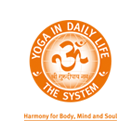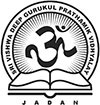Dejan Kupnik, M.D.
Pre-hospital Unit - Centre for Urgent Medicine, Maribor, Slovenia
Pre-hospital Unit - Centre for Urgent Medicine, Maribor, Slovenia
Introduction
Through the history of mankind, a vegetarian lifestyle was a lucid decision of many. Unfortunately there are still misunderstandings and unjustified fears around vegetarianism. One in particular is the false belief that this kind of food does not provide a sufficient intake of basic food nutrients needed for the normal development of the human body in general, especially in the time of pregnancy, lactation and adolescence. The purpose of the following essay is to present scientific knowledge gathered over the last twenty years in relation to a vegetarian lifestyle.
The time before pregnancy
A healthy and balanced nutritional intake by the mother-to-be prepares her body for the conception and development of a new human being. It is good for her to establish an optimal body weight because the body's normal energy balance works best when the body weight is in the range of 10 percent above or below the optimal body weight. It is also good not to use oral contraceptives some months before planned conception because it can disturb the normal processing of various vitamins and minerals in the mother's body. The following principles should also be observed:
- Drinking alcohol depletes the body of thiamine (B1 vitamin), B6 and folic acid
- Drugs used against epilepsy lower the storages of vitamins D, K and folic acid
- Lipid-lowering drugs also lower the storages of vitamins A, D, E, K and the mineral iron
- Corticosteroids lower the body contents of vitamin D, calcium, zinc and kalium
- Diuretics lower levels of kalium and zinc
- Tuberculostatic can cause insufficiency of B6 vitamin
- Oral contraceptives and estrogens are in connection with vitamins B6, B12 and folic acid depletion.
Alcohol, black coffee and other caffeine containing drinks should be excluded from every-day drinking habits because they weaken the absorption of some vital nutrients which are found in food.
A pregnant woman encounters increased needs for proteins, carbohydrates, fats, vitamins (especially folic acid), minerals (especially iron) and dietary fibres. If her diet is well planned and balanced she and her future baby will not be lacking any nutrients.
Proteins
Proteins are not just an energy source. They are essential in cell division and growth, growth of body tissues, enzyme production and so on. A sufficient amount of proteins is assured with diets containing milk products, pulses, cereals, seeds and nuts.
A combination of these kinds of food eaten over various meals in one day is the best way to give the body what it needs. Proteins from plant sources (beans, soya, peas, and cereals) contain sufficient amounts of all essential amino acids which are the basic constituents of proteins. A future mother should also drink at least a half to one litre of milk per day. With that she will receive lots of calcium and proteins. It is also important to consider that the body of a younger pregnant woman (aging 18 or less) will need even more essential nutrients because her body is still in development.
The basic elements of proteins are amino acids, some of which are essential and others nonessential. The former are those which can not be synthesized by the body but can be received through a well planned diet. It is not true that they can only be found in the form of meat products; however it is true that they can not be found in all plant based food products. Essential amino acids missing in one meal can be provided by eating different vegetarian food sources in the next meal or by combining various types of food in one meal. In this way the requirements of the body of a pregnant woman, a lactating woman and adolescents can be satisfied.
Fats
Fats represent an energy source for the body, promote absorption of vitamins A, D, E and K, they co-create cell membranes and are the basic structures needed in the synthesis of fatty acids and some hormones (sex hormones and hormones of the adrenal cortex). They are also involved in the prevention of lung collapse.
The important basic elements of fats are fatty acids which can be saturated (found in meat, milk products, animal and plant fats), mono-unsaturated (found in olive and peanut oil) and poly-unsaturated. Among all there are two fatty acids which can not be synthesized by the body. The first is linoleic acid which is the originating fatty acid for the omega 6 group of poly-unsaturated long-chained fatty acids. The second is alpha-linolenic acid which is the originator for the omega 3 group of fatty acids. These two fatty acids and all the acids derived from them are extremely important for the development of all tissues, especially for the central nervous system and the retinas of the eyes.
Saturated fats are connected with the early development of atherosclerotic processes in body's blood vessels which can ultimately lead to brain stroke or heart infarction. Mono-unsaturated and poly-unsaturated fatty acids are, as said, very important for the new developing human being. Especially the later (omega 3 and omega 6 groups) must be provided in balanced manners. The future mother should avoid food products that contain hydrogenated fats which interfere with the normal metabolism of fatty acids. These hydrogenated fats can be found in some biscuits and cream soups.
It is now known that flax-seeds contain a lot of alpha-linolenic acid. These acids are also found in fish and mothers who do not eat fish have a reliable and excellent source of them in flax-seeds. It was proven that ingestion of flax-seeds shows equally comparable results to those connected with ingesting fish. These omega 3 acids also act protectively against heart arrhythmias and prevent the development of blood clots.
We have to mention that fatty acids are prone to oxidation processes especially when that fat is heated or exposed to light. It is important to know that some vitamins (A, C, E) and mineral Selenium act against these processes and by that they also act against the early development of previously mentioned atherosclerotic processes and cancer.
In conclusion we can list some food products which contain reliable sources of "good" fat. These are flax-seeds and other seeds, nuts, soya oil, olive oil, legumes, cereals, milk and milk products.
Sugar
The daily intake of sugars should represent 50 to 60 percent of the daily energy requirements of the body. The first group of sugars are so called simple sugars (simple refined granulated kitchen sugar) which should be avoided by pregnant women because they slow down the digestion and have no nutritional value.
The next group are complex sugars which can be found in cereals and their products and in potatoes.
The third group are dietary fibres, complex sugars which are indigestible and can be found in fruits, vegetables, cereals and also legumes. They bind with water, soften the gut contents and by that accelerate the passage of the digested food through the gut. Therefore they work against constipation, diverticulosis and cancer development. Why is that so? The food we eat is composed not only of needed nutrients but also contains added stabilizers, emulgamators and other substances which prolong the freshness and durability of food. Many of these are also a carcinogen which means that they alone or in combination with other factors can cause the development of cancer. A vegetarian diet is known to accelerate digestion so that these potentially dangerous substances are not in contact with intestinal cells for long and hence can not cause any serious damage. The dietary fibres also bind cholesterol in our gut and by that lower the blood cholesterol.
The complex sugars are the group of sugars best fitted for future mothers.
Minerals
Vegetarian pregnant women can get all the needed minerals from rich vegetarian diets which include legumes (beans, soya, peas, and lentils), cereals, all kinds of vegetables, nuts, seeds, fresh and dry fruits, potatoes, milk and milk products. But despite all that it can happen (especially in the last trimester) that some minerals must be ingested through pharmaceutical products (which is also certainly the case with non-vegetarian mothers-to-be).
It has been discovered that iron can be much better absorbed if salads (vegetable or fruit) and vegetarian stakes are soaked with a little bit of lemon juice. If the pregnant woman has no anaemia then pharmaceutical products containing iron are not recommended.
Absorption of calcium is in correlation with the level of vitamin D. The latter is very much dependent on how often we are exposed to the sunlight (that should be at least four times a week for 30 minutes a day). Milk and milk products are of great value not just for the high content of protein but they contain a lot of calcium too.
Vitamins
The time of pregnancy also requires higher dosages of vitamins. Vitamins are substances which can not be produced by our body and must be ingested with food. It is important to know that cooking destroys a great many vitamins - especially those from the B complex group and the C vitamin. Let's just say that 15 minutes of cooking should be enough to prepare a cooked meal.
Only after consulting a physician should a pregnant woman start to take artificial vitamins in the form of tablets and only in doses which are recommended. Higher intake than allowed of vitamin A is connected with some serious problems in foetal development. High intake of vitamin C can lead to abstinential crisis in a newborn baby.
Folic acid is of great importance for normal development of the brain and the rest of the baby’s nervous system. Cooking destroys this vitamin and supplementary intake in the form of tablets is recommended around the time of conception and in the first trimester.
A story of its own is the one about vitamin B12. This vitamin can be found only in animal products and for vegetarians this includes milk and milk products. For a long time it was considered that soya products like miso, tempeh, tamari, shoyu and some other algae products like nori alga contain enough of B12 vitamin. But it was recently found out that such products contain only so called B12 analogs, chemical compounds which only chemically resemble the B12 vitamin but do not have any physiological effects on our body like the true B12. Sometimes these false B12 can even disturb the absorption of the true B12 vitamin in our gut. So what to do? We must take care to consume milk and its products. There are also some soya and cereal products enriched with the true B12 vitamin and it was proven that consuming such products at least four times a week keeps body levels of B12 vitamin in the amounts required for the normal functioning of the body.
Water intake
The most suitable drinking products in pregnancy are water, fresh vegetable and fruit juices and lemonade. Alcohol, black tea, black coffee and carbonated drinks should be avoided.
To finish...
50-60% of daily energy requirements should be secured with complex sugars (carbohydrates), 25-30% with fats and 10-15% with proteins.
It is a fact that a lot of old nations were utilizing true vegetarian diets and lived healthy, long lives. Throughout the world there are an increasing number of those who care for this planet of ours and who know that an animal mother greaves for its lost or killed child in the same way as a human mother does.
It is well known that consuming meat and its products is correlated with a higher incidence of cardiovascular diseases, arthritis, cancer and many other diseases. We should use those vegetarian diets which offer our body everything it needs for its normal development and growth.
So on the question "Vegetarianism in pregnancy - yes or no?" we can peacefully affirm: "Sure, why not?"


 From a Yogic point of view it is not the cows causing the problem but what is behind it. Mala - impurities in our thinking.
From a Yogic point of view it is not the cows causing the problem but what is behind it. Mala - impurities in our thinking.


 If you are eating an apple you are a normal human being - even the staunchest meat eater would agree that the sight of a human biting another living creature is not normal.
If you are eating an apple you are a normal human being - even the staunchest meat eater would agree that the sight of a human biting another living creature is not normal.
 The perfect awakening of Self-Realisation takes place through Love
The perfect awakening of Self-Realisation takes place through Love





